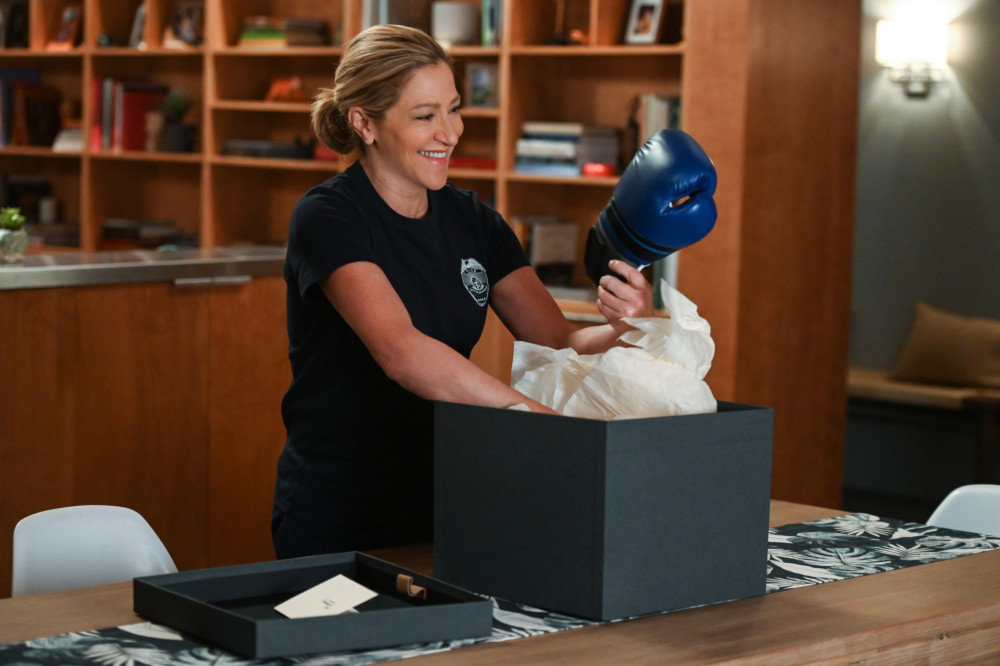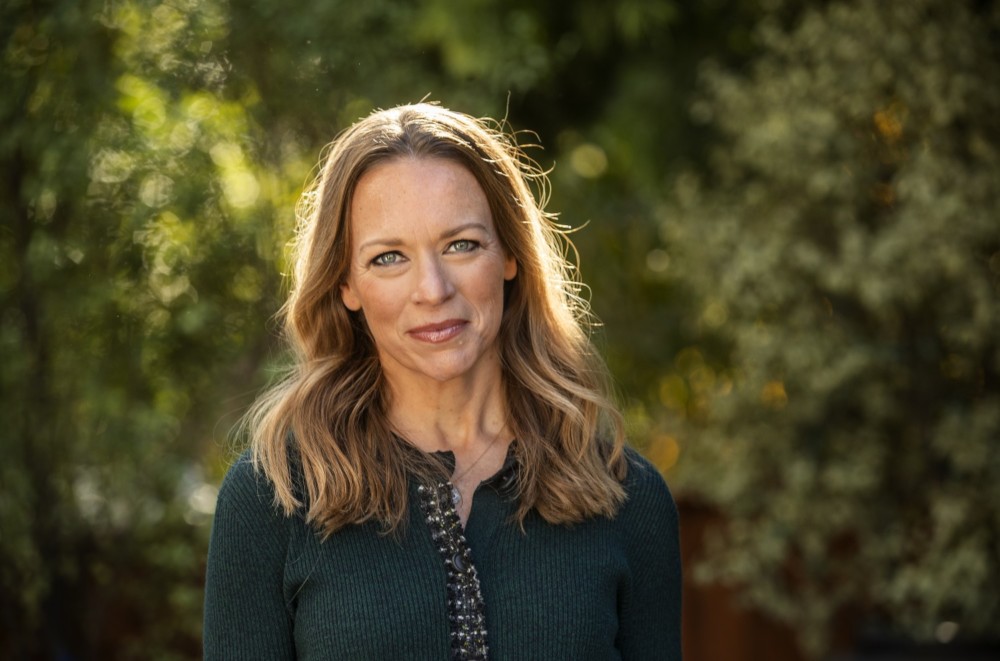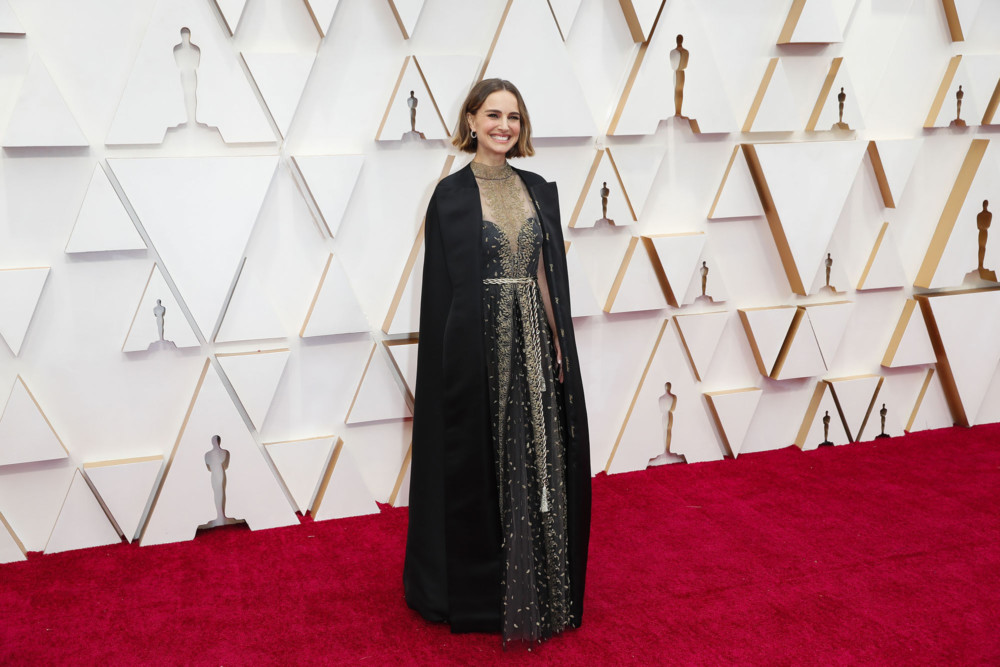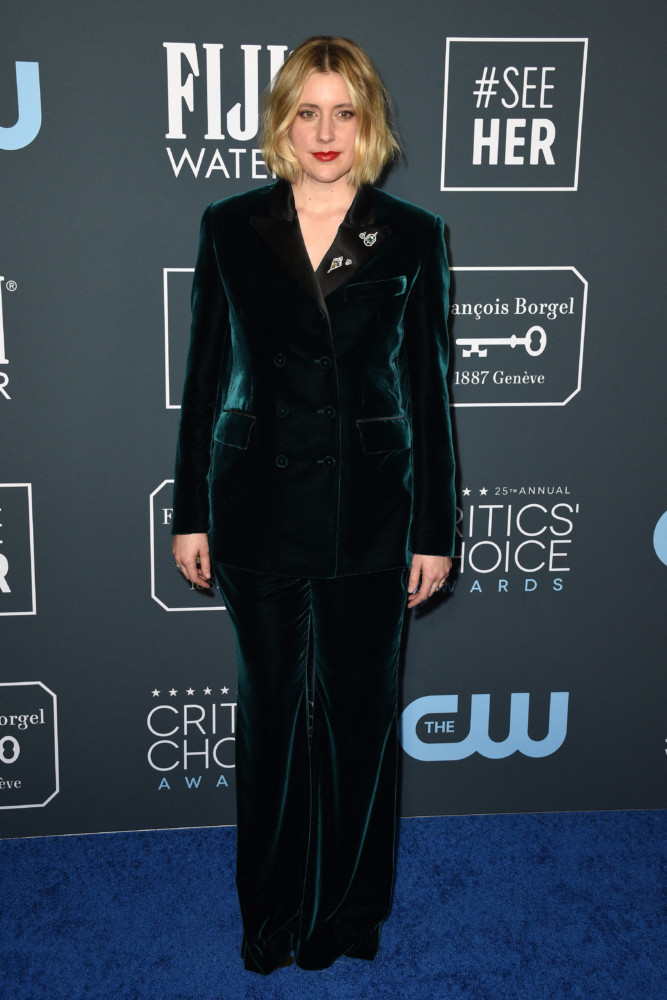By Meredith Blake
Los Angeles Times
WWR Article Summary (tl;dr) As Meredith Blake reports, ” “Tommy,” which premiered Thursday on CBS, blends police procedural with serialized political drama. Falco stars as Abigail “Tommy” Thomas, a veteran New York cop who is chosen to replace a chief caught up in a sex abuse scandal.”
Los Angeles Times
When Edie Falco first read the script for “Tommy,” a drama about the first female chief of the Los Angeles Police Department, she was intrigued. But she assumed it would film in LA, a nonstarter for a single mom with two kids in school in New York City.
Thanks to a little Hollywood magic, Falco was able to take the part without having to relocate.
“They have a couple of palm trees,” Falco said recently at a cafe near her home in the West Village. “Carry ’em around in the truck and stick ’em in front of the bodega, stick ’em in front of the person’s house. Seriously, by the end of the season, they were looking a little sad.”
Created by Paul Attanasio (“Homicide: Life on the Streets”), “Tommy,” which premiered Thursday on CBS, blends police procedural with serialized political drama. Falco stars as Abigail “Tommy” Thomas, a veteran New York cop who is chosen to replace a chief caught up in a sex abuse scandal.
Early episodes tackle hot-button topics such as immigration, tension between law enforcement and communities of color, and sexual misconduct in the entertainment business.
But Tommy, who also happens to be gay, doesn’t necessarily think of herself as a trailblazer.
“She’s just a woman in a hard job she does well. The fact that she’s the first woman is not something that takes up a lot of her brain space,” said Falco, who, as a child, used to tag along with her mother to performances in community theater and summer stock.
Eventually, she started acting herself, but, she said, “It just seemed like the most preposterous way for grown-ups to spend time.”
Falco figured she’d become a therapist but was encouraged by a high school teacher to apply to the theater program at the State University of New York at Purchase, where she found a niche playing kooky, Diane Keaton-esque roles. Many of her female classmates were “very pretty young girls who were all the leads in their school plays.”
“I just didn’t identify with that. My femininity is its own brand,” says the actress, 56.
Not being an ingenue worked out just fine for Falco, a four-time Emmy winner best known for playing two wildly different yet equally complicated women: pampered mob wife Carmela Soprano in the pioneering HBO drama “The Sopranos,” and drug-addicted emergency room Nurse Jackie Peyton in the Showtime series “Nurse Jackie.”
But Falco is not the type to spend much time contemplating her place in TV history.
“I said to my son, who’s 15, ‘You know what I do for a living?’ He said, ‘Yeah, walk around pretending to be other people.’ And I said, ‘OK, what’s the name of the show I’m working on right now?’ And he goes ‘Uh … “Tony”?’ And I was like, ‘All right. That’s exactly where I want them to be.’:
Falco scarcely needs her kids to keep her humble, though: “To this day,” she deadpanned, “I’m not sure I won’t be a therapist.”
___
Q: You’re primarily known for your work in premium cable. Were you wary of the creative limitations of being on a broadcast network?
A: No, I wasn’t. I’ve seen cable stuff that I’ve been moved by and I’ve seen network stuff that I’ve been moved by. I think the freedom of nudity and bad language is exciting at first, and then maybe it kind of goes too far, and you start to wonder, “Did she really need to be naked in that scene?” You start to wonder, “Has it outlived its usefulness when we’re no longer shocked by this stuff?” There is something kind of nice about having to go back to finding meaningful stories and complicated people without a lot of bad language.
Q: I was looking to see if there are many female police chiefs in major cities, and it turns out there aren’t.
A: It’s ridiculous. I don’t know what to say about it. There are certainly female cops everywhere. These things take time. Change is always hard. I’ve come to think if you haven’t seen it in the media, it’s very hard to make that change. I feel like had there been a (popular) show about a female president we might be in a different situation right now.
Q: Did you do any research for the part?
A: No. Research is not a part of my process in that way. I’ve always been encouraged to do that sort of thing. For “Nurse Jackie,” they got me into an emergency ward, and I wanted no part of it. This is, like, the worst day of most people’s lives, having to be brought to an emergency room in an ambulance or whatever. And I’m there like, “I’m an actress!” I was too sensitive to the real people involved in the situation to take it in in any meaningful way. I felt like a real intruder.
Q: Your mother worked day jobs but acted on the side. Did you get the sense that her dreams were thwarted in some way?
A: Yes. And she was thwarted by the time in which she grew up. She married an Italian guy from Brooklyn who was not necessarily about his wife going off and becoming a famous actress. It was a source of some contention that when I decided to pursue acting, my dad was my biggest fan, falling over himself with excitement about all my accomplishments. It was a complicated thing.
Q: That sounds painful.
A: Yes, absolutely. They were married to each other three times. And my mom married two other guys in between those marriages. It was a big fat mess. My parents really were committed to each other forever but not as husband and wife. That marriage definitely didn’t make a lot of sense to me. I didn’t have a lot of examples growing up of marriages that worked, where both were happy. It was a very complicated and confusing institution for me.
Q: Speaking of marriages, the wives on antihero dramas such as “The Sopranos” often got criticism from fans. Did you ever feel that?
A: Nobody ever said that they judged (Carmela). But I judged her. For sure I did. Until it became clear to me the levels of denial. If she had to think about what Tony really did for a living, she could never stay with him. She’s raising kids, for God’s sake, and there are guns in the house and all that stuff. How could she let this be?
Q: It is refreshing to hear that. So many actors say they don’t judge their characters and sometimes it’s like, “Really?”
A: Which is not to say I didn’t love her and understand her too. But also, now that I’m a mother, I’ve asked really hard questions of (myself). Nothing comes before my kids. I don’t think I’m really in denial about anything. So it makes me even less sympathetic to Carmela. Also, I think women have a larger range of possibility in what they’re able to be and do and say now than when she grew up. I think Carmela was like, “Who am I without him?” She just was not able to entertain the possibility of not being married to him.
Q: What about Jackie Peyton? She was messy too.
A: Yeah, for sure, but also good at her job and able to just barely keep her head above water to ignore that looming thing that was eventually going to bite her head off. You learn in these 12-step meetings that anything you put before the importance of treating the addiction, you will lose.
Q: You have been sober a long time. Was there one incident that made you give up drinking?
A: I was living in a (walk-up apartment nearby). I just had a horrible, debaucherous night. All I remember is trying to get into my apartment up on the fifth floor. It was really cold, and at a certain point I realized I was trying to get on to the roof of my building. I’m so glad I didn’t, God knows what would have happened. I woke up the next morning, fully clothed on my bed, and the door to my apartment was wide open. There are those of us who are lucky enough to have the moment where we realize, “Oh, it’s over.” That was 27 years ago.
Q: Did playing Jackie, someone who relapses repeatedly, help you at all?
A: I’m too far beyond that. I could only play it because I felt so far away from it. But you’ve got to stay on top of it. I really made a big fight about the series not ending well for her _ “We want to give them hope.” But it’s a comedy about a drug addict and, I don’t know, I don’t find a lot of humor in that. At the very least, we’ve got to make sure it ends in a way that respects what addicts and their families have gone through. That really was important to me.
Q: I have heard you didn’t watch “The Sopranos.”
A: I’d watch some of the edits. But not all of them. Me and Aida (Turturro), who played Janice and is one of my closest friends, sat down to watch them recently. We got four episodes in, and we couldn’t do it. It was too evocative. It was such a big time in our lives and such a big chapter for all of us. I may get to it someday.
Q: This is a very specific question, but Carmela’s nails were such a distinctive part of that character. Was that important to you?
A: It feels like those nails keep you from having to really engage with anything dirty. She always had people doing stuff for her. She wasn’t fixing the garage door. It always felt like a sign to me of someone who doesn’t work very hard. The nails were made for me and I glued them on very day. Just like I glued these on. (She fans her fingers, which are topped with blue press-on nails from the drugstore.) I have to do a talk show tonight, and my nails are really nasty because I do crafts. So I just glue them on. I’ve done it for years.
I still have (Carmela’s nails). I have them in their case. I was pretty neurotic about it. I’d take them off and then they’d have glue on the underside so I had my little dremel, a little tool you plug it in, it has a sanding edge on it to clean out the glue from the inside of the nail.
Q: In the decade between the premiere of “The Sopranos” and “Nurse Jackie,” TV changed dramatically. Did you feel that from the inside?
A: I’m not great at having a bird’s-eye view of what’s going on in my industry. I’m very first-person singular with my experience of all of it. I always wish there was more work _ more good work. But I have never felt as acutely as a lot of women did that there weren’t a lot of good parts for women. Maybe that has to do with my tomboy quality. I played a good number of parts that were originally written for men. I played a D.A. on “Law and Order” and a manager in “The Comedian” with (Robert) De Niro. I’m kind of in that middle ground. And now I’m playing Tommy.
Q: What are you watching these days?
A: I watch CNN. I am obsessed with politics to the point where it’s not good for me. We’re in a bit of a crisis right now as a people. I’m concerned about that. And “Dr. Pimple Popper.” My daughter is obsessed and I watch it with her. We go to bed, like, nauseated, but you can’t turn it off. People have such shame, “I have this bump on my shoulder,” whatever. And she’s like, “Come over here. Let’s fix it.” They walk out crying. My whole life has changed. It’s big stakes. It’s formulaic and all that, but the procedures are never not interesting. I’m a little embarrassed I told you that.
___
Distributed by Tribune Content Agency, LLC.

















































































































































































































































































































































































